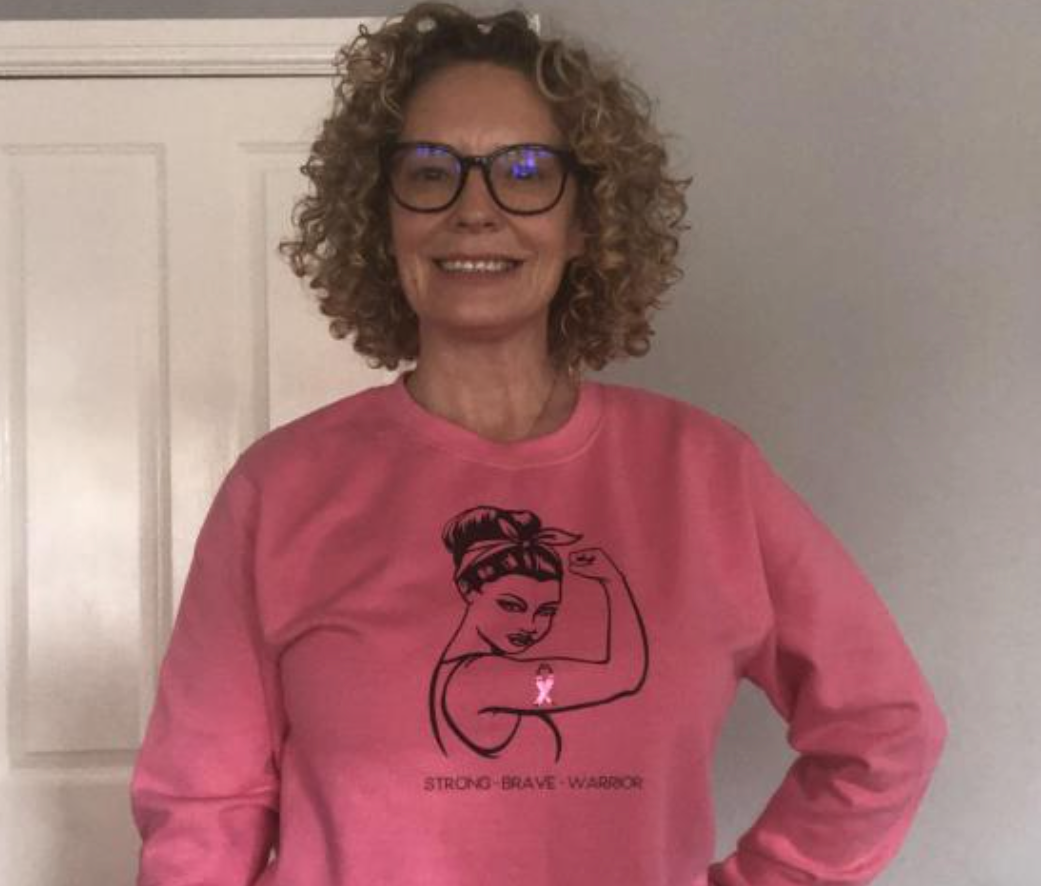Getting Your Groove Back
- Jody Bullough, 51, from Northwest England was diagnosed with triple-negative breast cancer in 2019.
- After a two-year battle, the brave warrior was inspired to launch a sex aid business, specifically “sex cushions,” designed for easier positioning during the deed.
- Cancer is a life-changing experience in so many waysincluding how a person handles their own sexuality. A lot of women, when they're dealing with cancer treatment, just don't feel interested in having sex. Others see little difference in their sexuality and their sex life. Both are okay!
Jody, who has a background in the manufacturing business, dropped the products this year, with sick and/or physically impaired individuals in mind, but the beautifully-designed products are really a match for anyone and everyone to get some better angles going.
Read MoreView this post on Instagram
Sign us up, Jody!
Judy’s Cancer Battle
When Judy found her lump, she was just about to go on vacation. “I initially dismissed it as hormones but when I was on holiday I couldn't lie on the sun lounger because it was so painful."

It was triple-negative breast cancer, which is one of the more aggressive types. Like many women, Jody had no family history of the disease, and lived life, as many of us do, feeling “invincible.”
Doctors removed a 2.4 cm tumor during surgery, then Jody underwent “months of chemotherapy.”
What is Triple-Negative Breast Cancer?
"It was toughI lost my hair and I had a lot of hair before. It was difficult for me and my daughter to deal with,” she shared. “It was a horrendous time, but I am still here and my hair has grown back even better than it has before.
Related: 'Acknowledging the Grief'Losing Your Hair During Chemotherapy
Although Jody says she appreciates things more, she has also turned into “more of a paranoid person” and is “constantly on high alert."
Luckily, Jody was given the “all clear” in February 2019. After her journey and all she endured, with chemotherapy treatment and radiation making her bones feel sore, she launched a sex aid business called “Bang On” with cushions and wedges “designed to make sex more comfortable.”
"It's not very nice having sex after cancer,” she admits. “They can help people going through a wide range of treatments and those experiencing back and hip pain, providing stability and comfort. They are also fantastic for pregnant women or for after giving birth.”
Sex After Cancer
While some women make sex a priority while going through cancer treatment, many feel they aren’t up to itand both are totally OK.
Cancer is a life-changing experience in so many waysincluding how a person handles their own sexuality. A lot of women, when they're dealing with cancer treatment, just don't feel interested in having sexand that's OK. Others see little difference in their sexuality and their sex lifeand that's OK too. Just like there's no one right way to deal with treatment, there's no one way to think about sex during and after the cancer journey.
Deciding When to be Intimate Again After Cancer
"In the setting of treatment, when a woman decides to be sexual again is really her decision," Dr. Jeanne Carter, a sexual psychologist at Memorial Sloan Kettering, told SurvivorNet.
"It's not uncommon for me to meet with someone in the post-treatment setting, and they'll describe to me that when they didn't have hair, they didn't feel sexy, and that it just wasn't the right timing for themwhich is completely appropriate and OK. I think people don't need pressure as they're going through treatment about those issues, and need to be able to talk to their partners about that."
Related: Sex and Cancer: How to Communicate Your Desires & Fears and Create New Sexual Experiences
While some women are able to make their sex lives a priority, many find they simply lack the energy while their body is going through so many changes. Dr. Carter also pointed out that many women, when they're dealing with these sexual issues, feel a sense of guiltbut she considers guilt a wasted emotion.
"Nobody asked for cancer, nobody asked for these changes, but different doesn't have to mean that it's bad."
After all, look at Jody and her new business. She found the “silver lining” and so can you. Most importantly, be sure to talk to your doctor, give them your full health history, and make sure you’re getting in for your regular mammograms … and your regular sex sessions with your partner if you feel so inclined!
Learn more about SurvivorNet's rigorous medical review process.


